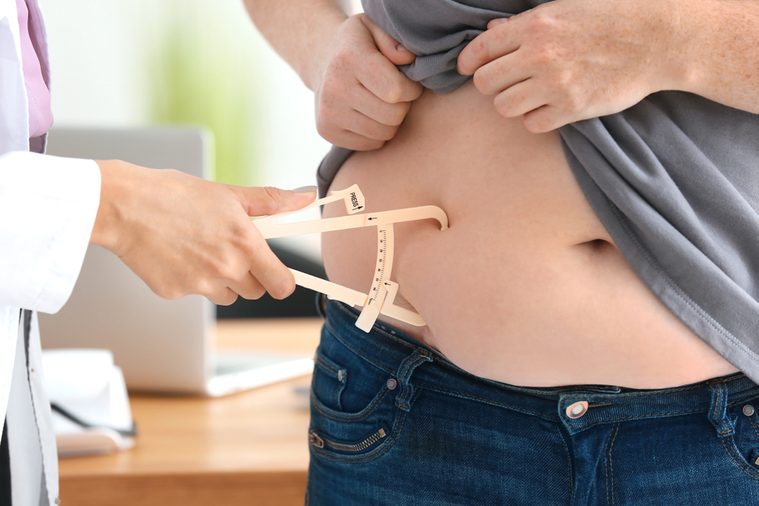
Doctors might provide sub-par care
Numerous studies show that weight bias is rampant in the medical field. This can lead doctors to make assumptions that weight is causing a patient’s health issues and make an incorrect diagnosis. According to research presented to the American Psychological Association, doctors consistently advise weight loss for obese patients while recommending that normal-weight patients—with the same symptoms—get tests such as CAT scans, blood work, or physical therapy. If your doctor is brushing aside your concerns, it’s time to find another doctor. Make sure you know the clear signs you need to fire your doctor.
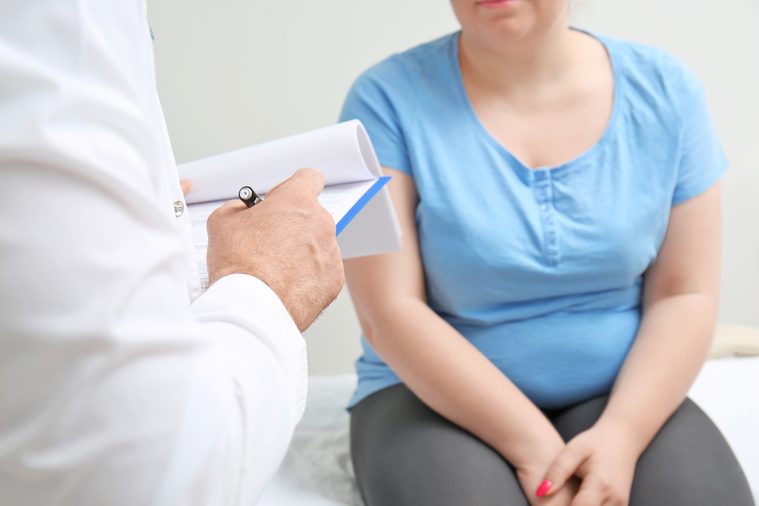
Some diagnostic tests won’t provide accurate results
Aside from certain machines not being able to accommodate obese patients, the tests themselves might not give you the answers you need. CNN reports that ultrasound waves have trouble penetrating tissue through more than eight centimeters of fat. In fact, one study found that ultrasounds were 20 percent less likely to find problems in the fetuses of obese women, while another revealed that mammograms resulted in 20 percent more false-positives. “The best thing to do is ask your doctor how weight affects the accuracy of each test,” says Pat Salber, MD, founder of the health website The Doctor Weighs In. “Be direct and say, ‘Is this test reliable for heavy people? If not, what are my alternatives?'” Find out what your doctor is really thinking (but won’t say to your face).
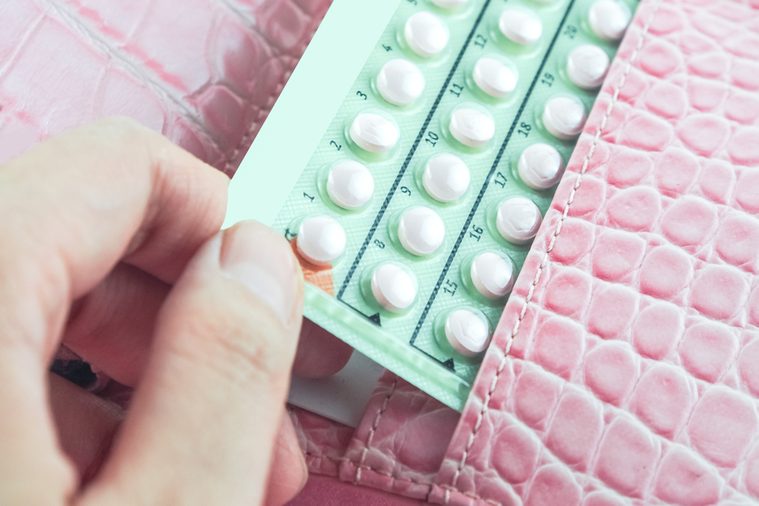
It could make your birth-control pill less effective
File this one under “yikes”: According to a study funded by the National Institutes for Health, oral contraceptives may not work as well for women with a body mass index (BMI) over 30. That’s because obesity affects the pill’s “clearance,” the rate at which the drug is processed and eliminated from the body, and lower-than-optimal levels can increase the risk of failure. Talk to your doctor about offsetting this problem with a pill that has a stronger dose of hormones or by taking pills continuously instead of opting for the usual week off for your period. Here are other things you never knew about your weight.
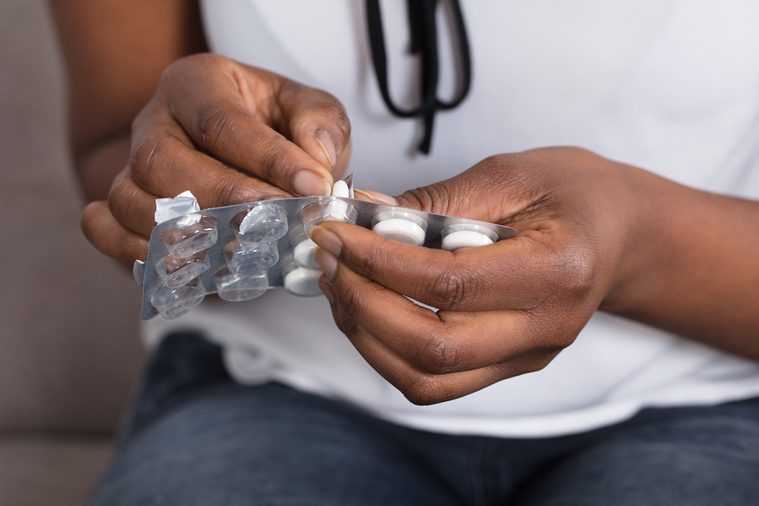
The morning-after pill might not work
For women who weigh more than 165 pounds, a standard over-the-counter emergency contraceptive might not prevent an unwanted pregnancy. As Women’s Health reports, according to a study in the journal Contraception, obese women needed double the standard dose of levonorgestrel, the active hormone in most morning-after pills. That said, if you find yourself in this situation, don’t take two pills; there hasn’t been enough research on it. Instead, see your doctor immediately and ask about the Ella pill, which may be more effective for overweight women, or get a copper IUD like ParaGard within five days.
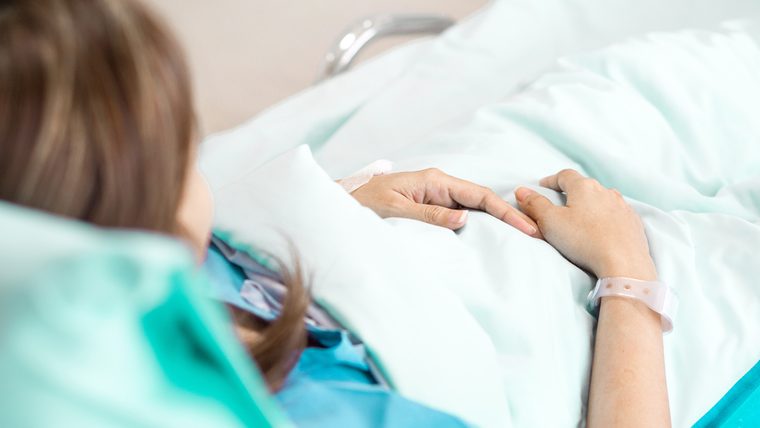
It puts you at risk during an overnight hospital stay
All hospitals were not created equally. If you’re obese and have multiple health issues, the Australian and New Zealand College of Anaesthetists recommends picking a bigger hospital with at least one doctor on duty throughout the night. Believe it or not, some smaller hospitals don’t offer that—and it could cost you your life. Why? Because breathing can be hindered by strong painkillers, especially opioids. So make sure to ask about a hospital’s resources and care plans before scheduling your procedure. Find out what secrets nurses wish they could tell you.
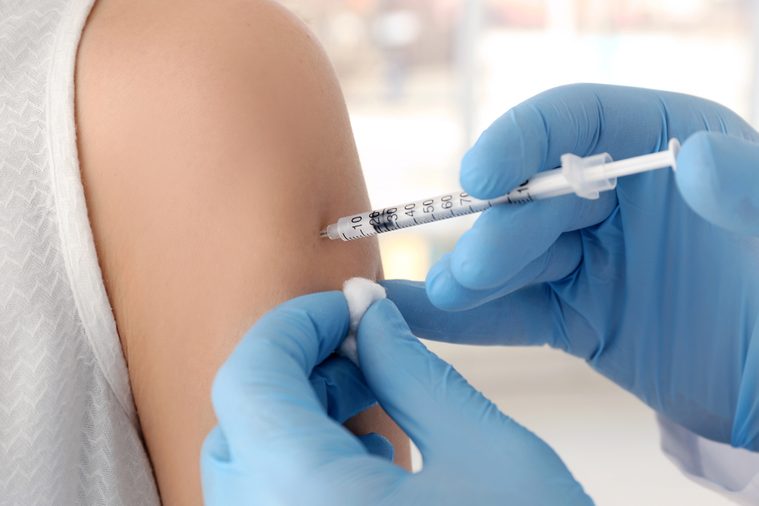
It might lessen the effectiveness of your flu shot
Did you get the flu even though you got the shot? Rogue strains may not be to blame (this time). Research published in the International Journal of Obesity found that the vaccine wasn’t as effective in obese patients. While scientists aren’t exactly sure why, they theorize that the immune system’s T cells might not work as well in people who are obese. Regardless, says Dr. Salber, get the flu shot: “It still provides some protection and has been shown to reduce severity and complications.”

IVF could be more difficult
For all that we know about making babies using assisted reproductive technology, there’s still a lot that we don’t know. To that point, a study published in the Journal of Clinical Endocrinology & Metabolism found that obese women need a higher dose of GnRH antagonist to successfully harvest their eggs. Another study found that a high BMI could negatively impact egg quality. Doctors often recommend that heavier women lose weight before attempting IVF, and another course of action after unsuccessful attempts would be to use donor eggs, which have a higher rate of success in obese women.
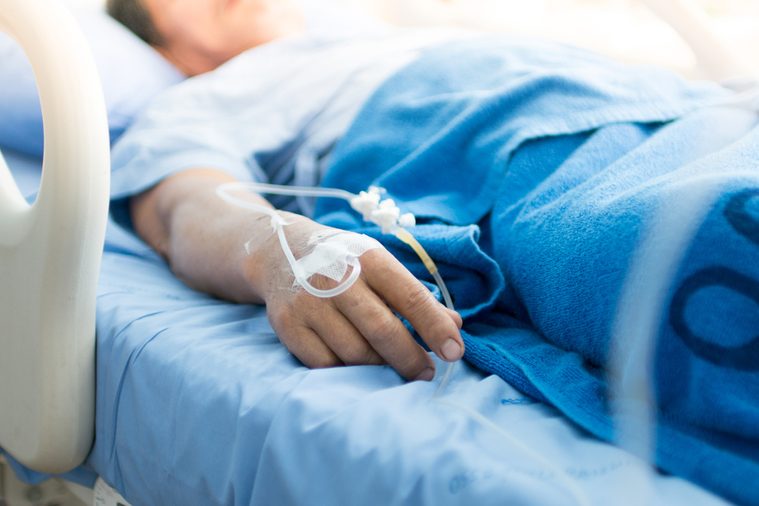
Complications after elective surgery are 12 times more likely
Yes, you read that right: Complications are 12 times more likely, according to researchers at Johns Hopkins University. If the surgery is truly elective, says Dr. Salber, try dropping a few pounds first. If you don’t want to wait, find a surgeon with a proven track record for operating on obese patients and visit the hospital to ask about obesity-related care. “Remember: You are the customer,” says Dr. Salber. “You have a right to learn whether the team caring for you has the skills they need to get you through your surgery journey safely.” Here are simple tips to start exercising when you’re overweight.

Wounds could take longer to heal
Obesity often leads to longer-than-normal recovery time for wounds and incision sites, as well as an increased risk of infection and other complications, according to research from the National Institutes for Health. To have a potentially easier recovery, take particularly good care of yourself while healing. That means eating fewer sugar-laden, processed foods and more protein- and nutrient-rich foods, including those containing vitamins A and C as well as zinc.

Doctors might not be knowledgeable about obesity
Surprisingly, if you want to lose weight, your doctor might not be your best resource. Why? Many doctors lack knowledge when it comes to treating and preventing obesity. According to Time, the CDC found that during obesity-related doctor visits, 60 percent of patients received no advice regarding diet, exercise, or weight-loss education. As a result, you need to be your own advocate, researching various diets, consulting a registered dietitian, and eventually circling back to your doctor to make sure the diet you’ve chosen is medically appropriate for you. Check out the surprising link between obesity and breast cancer.
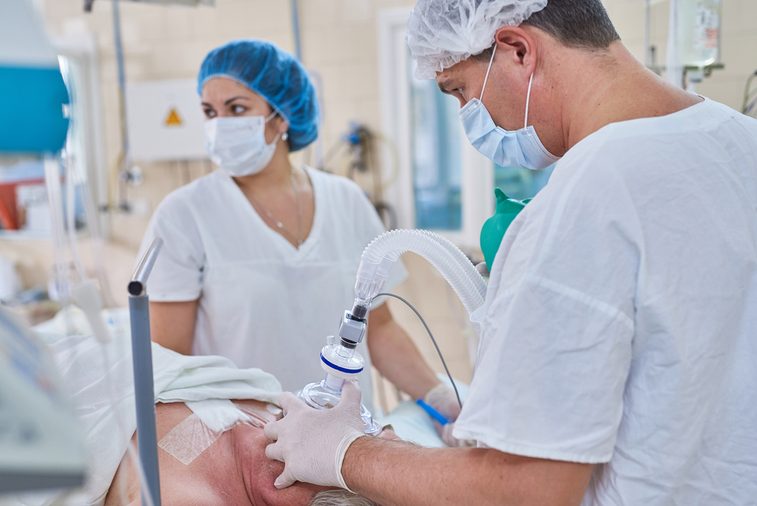
Anesthesia is trickier to administer
As if going under the knife weren’t terrifying enough, administering and monitoring anesthesia in overweight patients can be more difficult than with normal-weight patients. In addition to figuring out the proper dose of drugs for someone with a higher body weight, there can be challenges in the operating room with airway management and common obesity-related issues, such as high blood pressure, diabetes, and cardiovascular disease. So speak with both your doctor and anesthesiologist to discuss their specifically designed plan for your surgery. Here are some ways to improve your hospital stay.
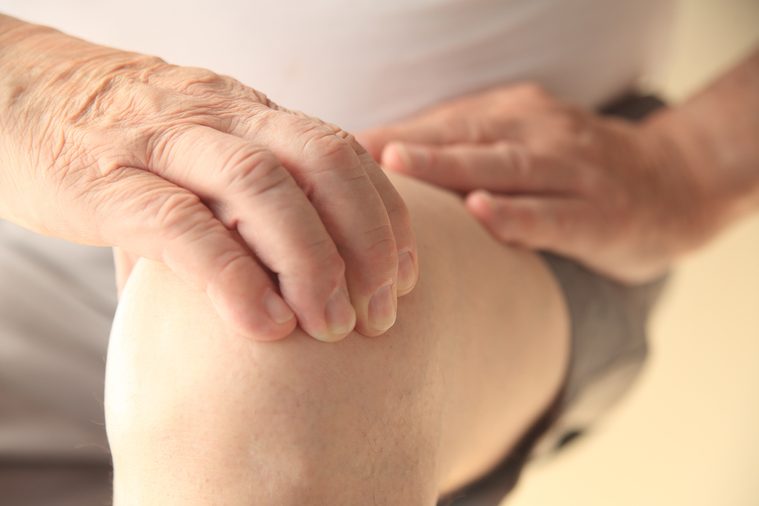
Knee-replacement surgery might not work as well
For people with chronic joint pain, knee and otherwise, surgery seems like the answer, but this isn’t always the case. According to Reuters, a study in the British Journal of Anaesthesia found that obese patients had a 35 percent higher chance of dependence or a new disability after joint surgery compared to non-obese patients. Those who were both obese and elderly had the highest likelihood of getting worse. So before committing to surgery, weigh the risks, try to lose weight first, and if you do have the surgery, strictly adhere to the recommended physical therapy.
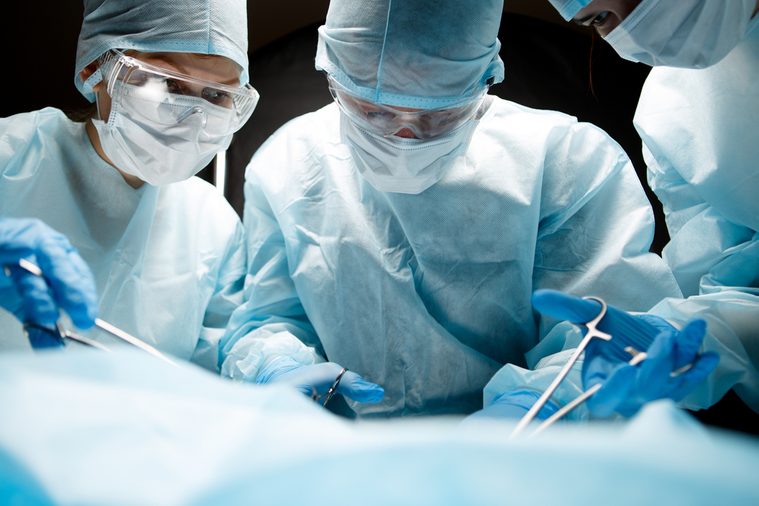
Heart surgery is more complicated
According to a study in The Annals of Thoracic Surgery, obese patients may have a longer road to recovery after heart surgery. Here are the sobering statistics: Obese heart-surgery patients are four times more likely to have an increased ICU stay; three times more likely to need more time on a ventilator; and three times more likely to need a return trip to the ICU. In the future, doctors may be able to analyze biomarkers in a patient’s blood to determine their recovery after heart surgery. Until then, follow Dr. Salber’s earlier advice about speaking candidly with doctors and hospital staff before your procedure.
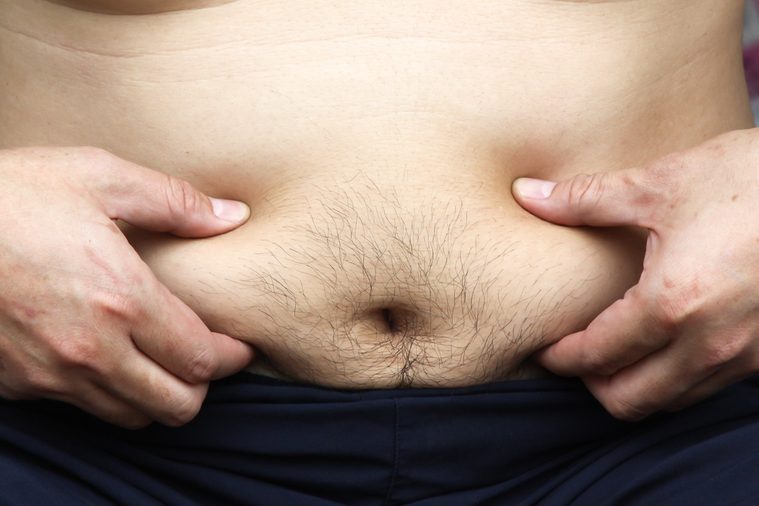
Cancer might go undetected for too long
Obese cancer patients tend to be diagnosed later and, as a result, may not fare as well as their lighter counterparts. This may be due to an overweight person’s increased difficulty of finding tumors through self-exams and the fact that cancer might not be on your doctor’s radar. So take charge of your medical care, says Dr. Salber, and don’t skip checkups or recommended cancer screenings. “Then become more aware of your body—know what normal feels like for you and report symptoms that are clearly abnormal,” she adds. “Never assume a doctor is aware of what you might need.” These are the things you should NEVER lie to your doctor about.